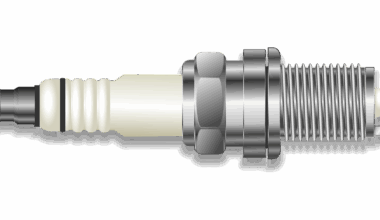Postnatal Fitness Strategies to Combat Sleep Disturbances
Sleep disturbances can significantly impact new mothers, leading to fatigue and stress. These interruptions often arise from hormonal changes, breastfeeding, and the overall demands of caring for a newborn. To mitigate these challenges, incorporating fitness strategies tailored to the postnatal period is vital. Regular exercise can improve mood, reduce anxiety, and promote better sleep quality, which can enhance overall wellness. Consider starting with gentle activities, such as walking or yoga, which can safely fit into daily routines. Aim for consistency, allowing the body to adapt gradually. Creating a supportive home environment is equally crucial. Family members can assist with childcare to enable mothers to engage in their fitness regimes. Proper hydration and nutrition can also contribute to improved energy levels. By adopting these approaches, new mothers can effectively tackle sleep disturbances while enhancing their overall physical health. Remember, seeking advice from healthcare professionals about safe exercises can ensure optimal results and personal well-being. Focus on enjoyment during such fitness activities to foster a sustainable routine that minimizes stress and promotes restful sleep for both mother and baby.
Incorporating relaxation techniques into your routine can significantly improve sleep quality for postpartum mothers. Yoga and meditation, in particular, have shown positive effects on emotional and physical well-being. Practicing these methods can help reduce anxiety levels while promoting muscle relaxation, ultimately leading to improved sleep. Dedicate time each day to engaging in mindful practices, such as deep breathing or gentle stretches, focusing on connecting breath with movement. This connection can quiet the mind and help to manage daily challenges faced by new mothers. Additionally, engaging in postnatal classes that focus on these aspects can foster a sense of community, allowing mothers to share experiences and support one another. Various online platforms offer resources and guidance for these practices, which can be especially helpful for those with limited time. Creating a comfortable, dedicated space for relaxation at home can further enhance these practices. Don’t hesitate to involve partners or friends in this journey, as having support can lead to better adherence to the routine. Transforming your approach to sleep through relaxation techniques can create lasting benefits for health and overall quality of life for new mothers.
Nutrition and Hydration for Improved Sleep
A balanced diet plays a pivotal role in combating sleep disturbances postnatally. New mothers need additional nutrients to recover and care for their newborns effectively. Incorporating a variety of whole foods is essential, as they provide the vitamins and minerals required for optimal health. Focus on consuming foods high in omega-3 fatty acids, such as salmon and chia seeds, as these can help stabilize mood and promote overall well-being. Complex carbohydrates, like whole grains, can assist in increasing serotonin levels, which subsequently promotes sleep. Foods rich in magnesium, such as leafy greens and nuts, also support sleep quality by regulating neurotransmitters. Staying well-hydrated is equally important. Dehydration can lead to fatigue and irritability, making sleep disturbances more likely. Aim for a minimum of eight glasses of water each day, while factoring in additional requirements if breastfeeding. Sipping herbal teas before bed can enhance relaxation and prepare the body for restful sleep. Integrating these nutritional strategies into daily routines can significantly impact sleep quality, enabling postnatal mothers to thrive amidst their new responsibilities.
Establishing a consistent sleep routine is crucial for overcoming sleep disturbances in the postnatal phase. However, this can be particularly challenging due to newborn care schedules. To create this routine, start by identifying a specific window for sleep each day and adhere to it as consistently as possible. Gradually encourage your baby to develop their own sleep schedule, focusing on creating a calm environment conducive to rest. Implementing soothing activities, such as reading or soft music, can signal the body to prepare for sleep. Also avoid stimulating activities close to bedtime, as they can interfere with relaxation processes. Use sleep hygiene practices, such as maintaining a cool, dark, and quiet bedroom, to enhance sleep quality. Limiting screen time at least one hour before bed allows for better melatonin production. Engage in technology-free quality time with your baby, which can promote bonding and ease nighttime transitions. Finally, remain flexible and adapt the routine as necessary, granting yourself compassion during this transitional time. Building a robust sleep routine fosters resilience while navigating the various demands of postnatal life.
The Role of Physical Activity
Physical activity is essential not only for physical health but also for managing stress and enhancing sleep quality during the postpartum period. Regular exercise can promote the release of endorphins, which can uplift mood and alleviate feelings of sadness or anxiety that some mothers may experience. Finding activities that you genuinely enjoy is key, allowing for sustainable engagement over the long term. Consider low-impact exercises like swimming, cycling, or even dancing, as they can be enjoyable ways to incorporate fitness into your routine. Group classes or online fitness programs designed for postnatal women can provide motivation, as connecting with others can inspire commitment. Move towards gradually increasing the duration and intensity of workouts based on comfort levels. Always listen to your body and consult with a healthcare professional to ensure safety. Additionally, integrating family members can enrich experiences, making fitness a fun bonding activity. Aim to practice short workouts, as they can suffice for maintaining consistent engagement in fitness without overwhelming yourself, ultimately contributing to improvements in sleep quality.
Social support plays a critical role in improving mental health for new mothers, which in turn can alleviate sleep disturbances. Connecting with family and friends strengthens the postpartum experience, providing encouragement and guidance. Having someone to share experiences and challenges can enable mothers to feel less isolated during this demanding period. Additionally, consider joining local groups or online communities specifically for new mothers, which can foster connections and provide valuable insights. These social platforms can offer tips for balancing responsibilities and self-care, enhancing overall well-being. Participating in group activities, such as postnatal workout sessions or workshops, not only promotes fitness but also expands social networks. Involvement in these communities can boost confidence, leading to better management of everyday challenges. Encourage open communication about feelings and experiences with partners, as sharing can strengthen relationships and build resilience. By embracing social support, postpartum mothers can create an enriching environment conducive to rest and rejuvenation, ultimately benefiting both mental health and sleep quality.
Conclusion: Embrace Your Journey
Embracing the postnatal journey encompasses managing sleep disturbances through various strategies that foster well-being. Every mother’s experience is unique, often requiring patience and a tailored approach to meet specific needs. Establishing fitness routines, prioritizing sound nutrition, and fostering social connections underscores the importance of self-care during this significant phase. Importantly, understanding that disruptions to sleep may occur is crucial for setting realistic expectations. Incorporate gradual changes into daily life, allowing time for adaptation and consistency. Promote a positive mindset by setting achievable goals while celebrating small victories along the way. Lastly, involve family in this journey, as their support can create a nourishing environment conducive to rest. Balancing responsibilities while ensuring personal needs are met can significantly impact overall emotional health. Remind yourself that the journey may have ups and downs, and seeking assistance is a sign of strength. By prioritizing physical activity, mental well-being, and holistic strategies, new mothers can navigate this life stage confidently and effectively. In this way, postnatal fitness can enhance not only sleep quality but also the overall experience of motherhood.
Implementing these strategies promises a smoother transition through the postnatal experience. New mothers can develop healthier routines benefitting themselves and their babies. Recognizing the challenges while embracing change fosters resilience and positivity in overcoming sleep disruptions. Prioritizing self-care sets a strong foundation, allowing mothers to flourish in their roles. Committing to fitness goals designed for the postnatal period ultimately fosters emotional and physical well-being. Experiencing a supportive network, nutritious eating, and personal growth cultivates a holistically rewarding journey. By taking these steps, new mothers will find effective solutions to deal with sleep disturbances, improving quality of life.


